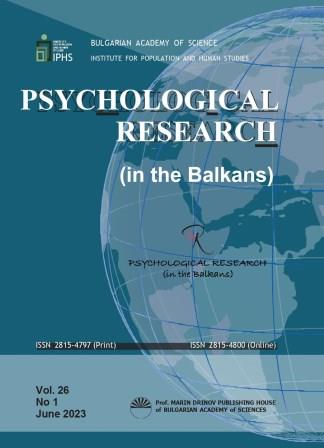Influence of Distance from Bulgaria on the Levels of Identification Among Migrants from Germany and the USA
Influence of Distance from Bulgaria on the Levels of Identification Among Migrants from Germany and the USA
Author(s): Joanna DragnevaSubject(s): Politics / Political Sciences, Social Sciences, Psychology, Sociology, Demography and human biology, Migration Studies
Published by: Институт за изследване на населението и човека - Българска академия на науките
Keywords: identification; geographical distance; host country; emigrants; Germany; USA.
Summary/Abstract: Identification processes in host countries are influenced by many and varied factors. They help or hinder the successful integration of migrants. Among them, the geographical remoteness of the host country plays a key role. In fact, the role of proximity or remoteness to the country to which a person migrates is of paramount importance in the study of migration processes. In this regard, the aim of the present study is to investigate and analyze the influence of host country remoteness on identification processes. It focuses on the countries of Germany and the USA – a choice based entirely on the geographical distance of the countries from Bulgaria. The methodological toolkit includes quantitative and qualitative analysis from a questionnaire survey and interviews using the narrative-biographical method. The sample of the quantitative study included 491 Bulgarian migrants (306 respondents from Germany and 185 respondents from the USA). The results obtained from three identification profiles (high, low and intermediate) composed of Bulgarian migrants in Germany and the USA. It was observed that the USA is mostly dominated by migrants with high and some with intermediate levels of identity. The average identification and low profile is characteristic of persons who prevail in Germany. Persons with high levels of identity in the USA identify themselves as Bulgarians and maintain contact with Bulgarians. They lack the possibility of frequent visits to their homeland, feel homesick and vote in elections. Distances are a serious barrier for them. Persons with low levels of identity in Germany define themselves as Europeans and do not maintain contact with Bulgarians. They have the possibility of frequent visits, and more communication. They do not vote, and factors such as nostalgia and sadness are not important to them. Persons with intermediate identification levels in Germany and the USA are characterized by the fact that they maintain less frequent contact with other Bulgarians. They also communicate a lot more with locals. Some wish to vote but do not have the necessary conditions. Others have conditions, but do not wish to vote and consider that as emigrants they have no right to participate in the political life of Bulgaria. They self-identify as both European/American and “other”. The results give reason to claim that migrants who have easier access to Bulgaria have weaker to medium identification. While those who live in the geographically more distant country have a more pronounced identity. The report presents the possible interpretations of the obtained result.
Journal: Psychological Research (in the Balkans)
- Issue Year: 26/2023
- Issue No: 1
- Page Range: 57-68
- Page Count: 12
- Language: English

